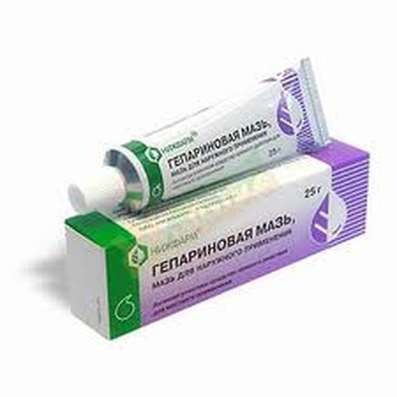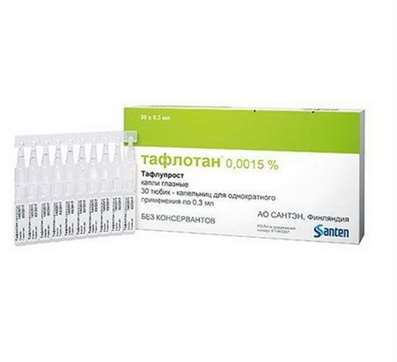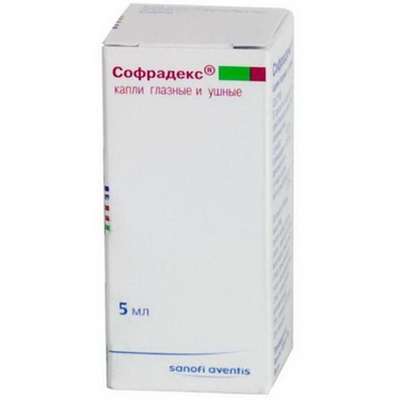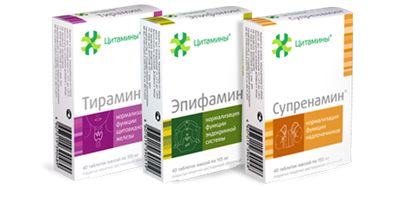Instruction for use: Koate-DVI
I want this, give me price
Dosage form: Lyophilizate for the preparation of a solution for intravenous administration
Active substance: Coagulation factor VIII
ATX
B02BD02 Coagulation factor VIII
Pharmacological group:
Coagulants (including factors of blood coagulation), hemostatics
The nosological classification (ICD-10)
D66 Hereditary factor VIII deficiency: Congenital insufficiency of factor VIII; Hemophilia; Hemophilia A; Hemophilia classical; Deficiency of antihemophilic factor of blood VIII; Deficiency of the coagulation factor VIII; Inhibitory form of hemophilia A; Bleeding at hemophilia A; Hereditary hemophilia; Hereditary anomalies of antihemophilic factor VIII; Failure factor VIII; Insufficiency of coagulation factor VIII; Acquired hemophilia; Coagulopathies are hereditary
D68.4 Acquired Coagulation Factor Deficiency: Acquired Factor IX deficiency; Hypoprothrombinemia; Deficiency of antihemophilic factor of blood VIII; Coagulopathies acquired; Acquired factor IX deficiency
Composition and release form
Lyophilizate for the preparation of a solution for intravenous administration of 200-399 IU 1 fl.
Highly purified dry concentrate of human anti-hemophilic factor (AGF, factor VIII) 200-399 IU *
Excipients: human albumin (25 mg), sodium chloride, L-histidine, calcium chloride
Solvent: water for injection - 5 ml
In vials (complete with solvent (fl.), Double-sided needle, needle-filter and infusion set); In a pack of cardboard 1 set.
Lyophilizate for the preparation of a solution for intravenous administration of 400-799 IU 1 fl.
Highly purified dry concentrate of human anti-hemophilic factor (AGP, factor VIII) 400-799 IU *
Excipients: human albumin (25 mg), sodium chloride, L-histidine, calcium chloride
Solvent: water for injection - 5 ml
In vials (complete with solvent (fl.), Double-sided needle, needle-filter and infusion set); In a pack of cardboard 1 set.
Lyophilizate for the preparation of a solution for intravenous injection 800-1400 IU 1 fl.
Highly purified dry concentrate of human anti-hemophilic factor (AGF, factor VIII) 800-1400 IU *
Excipients: human albumin (50 mg), sodium chloride, L-histidine, calcium chloride
Solvent: water for injection - 10 ml
In vials (complete with solvent (fl.), Double-sided needle, needle-filter and infusion set); In a pack of cardboard 1 set.
* Coagulation factor VIII activity (VIII: C) was determined in accordance with the International Standard for Factor VIII concentrates; Specific activity after addition of human albumin is 9-22 IU / mg protein.
Description of dosage form
Lyophilizate for the preparation of a solution for intravenous administration - a white or light yellow amorphous mass.
Characteristic
Coate-DVI is a concentrate of coagulation factor VIII, prepared from human plasma, twice virusinactivated (hot steam treatment and solvent-detergent treatment).
Pharmachologic effect
Mode action - hemostatic.
Pharmacodynamics
The mechanism of action of the drug is due to the inclusion of activated factor VIII in the multistage process of blood clotting - eventually the drug promotes the transition of prothrombin to thrombin and the formation of a fibrin clot.
The use of the drug provides an increase in the content of factor VIII in blood plasma and temporarily eliminates the defect of coagulation in patients with hemophilia A.
Koet-DWI also contains a natural Willebrand factor.
Pharmacokinetics
After the administration of Koate-DVI, an increase in the activity of factor VIII in plasma is from 80 to 120% of the expected. In pharmacokinetic studies, the recovery of factor VIII in vivo 10 minutes after the administration of the Koate-DVI drug averaged 1.9% / kg.
The activity of factor VIII in the blood plasma is reduced by a two-phase exponential curve. In the initial phase, it is distributed between the intravascular bed and extravascular tissue fluids with T1 / 2 from the plasma for 3-6 hours; Approximately 2/3 to 3/4 of the intravenous factor VIII remains in the vascular bed.
The subsequent, slow phase, possibly, reflects the disintegration of factor VIII. In this phase, T1 / 2 is from 8 to 20 hours, on average - 16.12 hours. This reflects the true biological factor T1 / 2 of factor VIII.
Indications for Koate-DVI
Treatment and prevention of bleeding in hereditary (haemophilia A) and acquired deficiencies in the coagulation factor VIII.
Contraindications
Hypersensitivity to the components of the drug.
Application of pregnancy and breastfeeding
Controlled studies confirming the safety of the use of coagulation factor VIII concentrates in pregnancy and lactation were not conducted. Therefore, the use of Coate-DVI during pregnancy and lactation is possible only on strict indications, when the expected benefit exceeds the possible risk to the fetus, mother or infant.
Side effects
Allergic reactions: in some cases - angioedema, skin hyperemia, urticaria, pruritus, chills, headache, arterial hypotension, drowsiness, nausea, vomiting, anxiety, tachycardia, chest tightness, stridorous breathing until the development of anaphylactic shock; Rarely - fever.
When the drug is administered in high doses, patients with blood groups A (II), B (III) or AB (IV) may experience hemolysis.
Local reactions: in some cases, a burning sensation at the injection site.
Interaction
Drug interaction of the drug Koate-DVI is not described.
Dosing and Administration
IV, slowly, by drop or stream infusion.
Therapy should begin under the supervision of a doctor who has experience in the treatment of hemophilia. Doses and duration of substitution therapy depend on the degree of factor VIII deficiency, localization, bleeding intensity and severity of the patient's clinical condition.
The amount of factor VIII administered is expressed in International Units (ME), which corresponds to the generally accepted WHO standard. The activity of factor VIII in plasma is expressed as a percentage (corresponding to normal human plasma) or in IU (corresponds to the International Standard for Factor VIII in plasma). 1 MU of factor VIII activity is equal to the amount of factor VIII in 1 ml of normal human plasma.
Calculation of the dose is based on the empirically established fact that when 1 IU of factor VIII is administered per kg of body weight, the activity of factor VIII in plasma is increased by 1.5-2% of normal activity.
The required dose of Koate-DVI is calculated by the following formula:
Dose, ME = (body weight, kg × desired increase in factor VIII,%): 2% / IU / kg.
Example: a child weighing 15 kg.
The required dose, ME = (15 kg × 100%): 2% / IU / kg = 750 IU.
In each specific case, the amount of drug administered and the frequency of administration should be correlated with clinical efficacy.
Lungs (mild superficial or early) bleeding may stop when the drug is administered at a dose of 10 IU / kg, which increases the level of factor VIII by about 20% in vivo. Before the appearance of signs of further bleeding, repeated administration is not required.
With moderate bleeding (eg, single hemarthrosis, certain trauma), the level of factor VIII should be raised by 30-50% by administering the drug at a dose of 15-25 IU / kg. If it is necessary to continue therapy, repeated administration can be carried out at a dose of 10-15 IU / kg; The drug should be injected every 8-12 hours until the bleeding stops completely.
To achieve hemostasis in patients with severe (life-threatening) bleeding or bleeding to vital organs (eg CNS, zygomatic or retroperitoneal space, vagina of the ilio-lumbar muscle), the level of factor VIII should be increased by 80-100% of normal. This can be achieved with the introduction of Coate-DWI at a rate of 40-50 IU / kg. The maintenance dose is 20-25 IU / kg and administered every 8-12 hours until the bleeding stops completely.
For major surgical interventions, the level of factor VIII should be raised to about 100% by preoperatively injecting Coate-DVI at a dose of 50 IU / kg. The level of factor VIII should be monitored before and during the entire operation period to confirm the adequacy of replacement therapy. To maintain the haemostatic level, repeated injections may need to be repeated every 6-12 hours for 10-14 days after the operation. The intensity of the necessary substitution therapy for factor VIII depends on the type of surgical intervention and the subsequent postoperative regimen. Hemostasis for small surgical interventions can be provided with less intensive treatment regimen.
For long-term prophylaxis in severe forms of hemophilia A, it is recommended that the drug be administered at a dose of 20-40 IU / kg every 2-3 days. In some cases, especially in young patients, it may be necessary to reduce the intervals between administrations or increase the dose of the drug to prevent hemorrhage.
- The drug solution is prepared immediately before administration. The prepared solution retains its chemical and physical stability for 3 hours at a temperature of 20-25 ° C, but it should be used immediately after preparation. Do not use a turbid solution or solution with inclusions. The unused solution must be disposed of properly.
Rules for the preparation and administration of a solution
Vials with solvent and concentrate should be heated to room temperature (not above 37 ° C). After removing the protective caps from the vials, the rubber stoppers of both bottles should be disinfected. Then, remove the protective coating in the form of an insulating film from the plastic cartridge of the transfer needle and puncture the stopper of the vial with the solvent. Remove the remaining part of the plastic cartridge, turn the solvent bottle and pierce the rubber plug of the vial with the concentrate using a needle at an angle. The solvent will enter the vial with the concentrate under the action of a vacuum. The bottle with the solvent should be kept at an angle to the vial of concentrate. After removing the vial with the solvent and the needle, vigorously rotate the vial of the concentrate until the powder is completely dissolved, without causing excessive formation of foam. After completely dissolving the powder, the solution should be drawn into the syringe through the supplied filter needle. Next, replace the needle with the filter on the injection needle and insert the IV solution. If a patient is required to enter more than one vial, the contents of the two vials can be dialed into one syringe through various unused filter needles before attaching the injection needle.
- The duration of administration is determined according to the individual response of the patient and is usually 5-10 minutes.
Overdose
- Symptoms of drug overdose Koate-DVI are not known.
Special instructions
In case of allergic reactions, the drug should be stopped immediately and treated depending on the nature of the allergic reaction and its severity. For mild reactions, antihistamines are prescribed, in severe cases, anti-shock therapy is administered.
When using human plasma or preparations made from it, the risk of transmission of infectious agents cannot be completely excluded, including. Not yet known. However, when using the drug Koate-DVI, the risk of transmission of infectious agents is maximally reduced due to the following measures:
- thorough medical examination and selection of donors, as well as screening of individual doses and pools of plasma for HbsAg and antibodies to HIV and hepatitis C;
- research of plasma pools on the genomic sequences of the hepatitis C virus;
- inclusion in the manufacturing process of treatment with tri-N-butyl phosphate / polysorbate 80 followed by heat treatment at 80 ° C for 72 hours to remove / inactivate viruses, the effectiveness of which has been proved on virus models. The effectiveness of these methods in relation to HIV-1, HIV-2, hepatitis C, A and B viruses has been confirmed;
- the final product is purified by gel chromatography, which provides a dual effect: a decrease in the amount of tri-N-butyl phosphate and polysorbate 80 and an increase in the purity of factor VIII.
The methods of virus removal / inactivation used in the production process can be partially effective for some non-enveloped viruses, such as parvovirus B19. When using the drug Koate-DVI, it should be borne in mind that infection with parvovirus B19 during pregnancy can lead to the development of an infectious disease in the fetus. There is also an increased risk of parvovirus B19 infection in patients with immunodeficiency or increased erythrocyte decay (eg, hemolytic anemia).
When treating plasma concentrates of factor VIII, incl. With the preparation of Koate-DVI, vaccination of patients against hepatitis A and B is recommended.
In the treatment of patients with hemophilia A, it is possible to develop a complication such as the appearance of neutralizing antibodies to factor VIII. These antibodies belong to the class of immunoglobulins G, are directed against procoagulant activity of factor VIII and are measured in Bethesda units (BY) per 1 ml of plasma (modified Bethesda method). The risk of the appearance of neutralizing antibodies correlates with the use of preparations of human factor VIII, the greatest risk of their appearance exists in the first 20 days of the drug Coate-DVI. Rarely neutralizing antibodies can be formed after the first 100 days of treatment. For timely detection of neutralizing antibodies, careful clinical observation and laboratory examination of patients treated with Koate-DVI should be carried out.
If a calculated dose fails to achieve the expected concentration of factor VIII or controls bleeding after the administration of the calculated dose, it should be suspected that the patient has neutralizing antibodies to factor VIII, the presence and level of which should be confirmed by laboratory tests. In the case of the presence of neutralizing antibodies, the required dose of factor VIII varies considerably and can be determined only by clinical response. Some patients with a low titer of neutralizing antibodies (up to 10 BY) may continue treatment with Coate-DVI. Patients with a higher titer may need to use other drugs. Treatment of immunological tolerance using repeated doses of a factor VIII concentrate administered according to a pre-prescribed schedule can lead to the disappearance of neutralizing antibodies. The most successful regimes were the use of high doses of factor VIII, administered at least 1 time / day. However, the most effective mode of administration of any given dose was not developed.
The preparation of Koate-DVI contains isoagglutinins of blood groups in an amount that is not clinically significant when small amounts of the drug are administered. If it is necessary to administer large or frequently repeated doses in patients with blood groups A, B or AB, it is necessary to monitor the level of hematocrit as well as the direct Coombs test for the timely detection of signs of progressive anemia.
When using the drug Koate-DWI should take into account that the sodium content in the maximum daily dose of the drug is 200 mg, which is important for patients on a hypo-and salt-free diet.
The preparation of Koate-DVI cannot be mixed with other drugs, because This can worsen the effectiveness and reduce the safety of the drug. It is advisable to flush the general venous access with saline before and after the administration of Koate-DVI.
Use in Pediatrics
Koate-DWI should be used with caution in children younger than 6 years of age who are rarely treated with factor VIII drugs.
Influence on the ability to drive vehicles and manage mechanisms
The use of Koate-DVI does not affect the ability to perform work requiring increased attention and speed of motor reactions.
The prepared solution for intravenous administration can be stored for no more than 3 hours.
In case of home treatment, the lyophilized powder can be stored at room temperature (not above 25 ° C) for 6 months without loss of factor VIII activity.
Storage conditions of the drug Koate-DVI
In the dark place at a temperature of 2-8 ° C (do not freeze).
Keep out of the reach of children.
Shelf life of Koate-DVI
24 months After the preparation of the solution - 3 hours.
Do not use after the expiry date printed on the package.

 Cart
Cart





